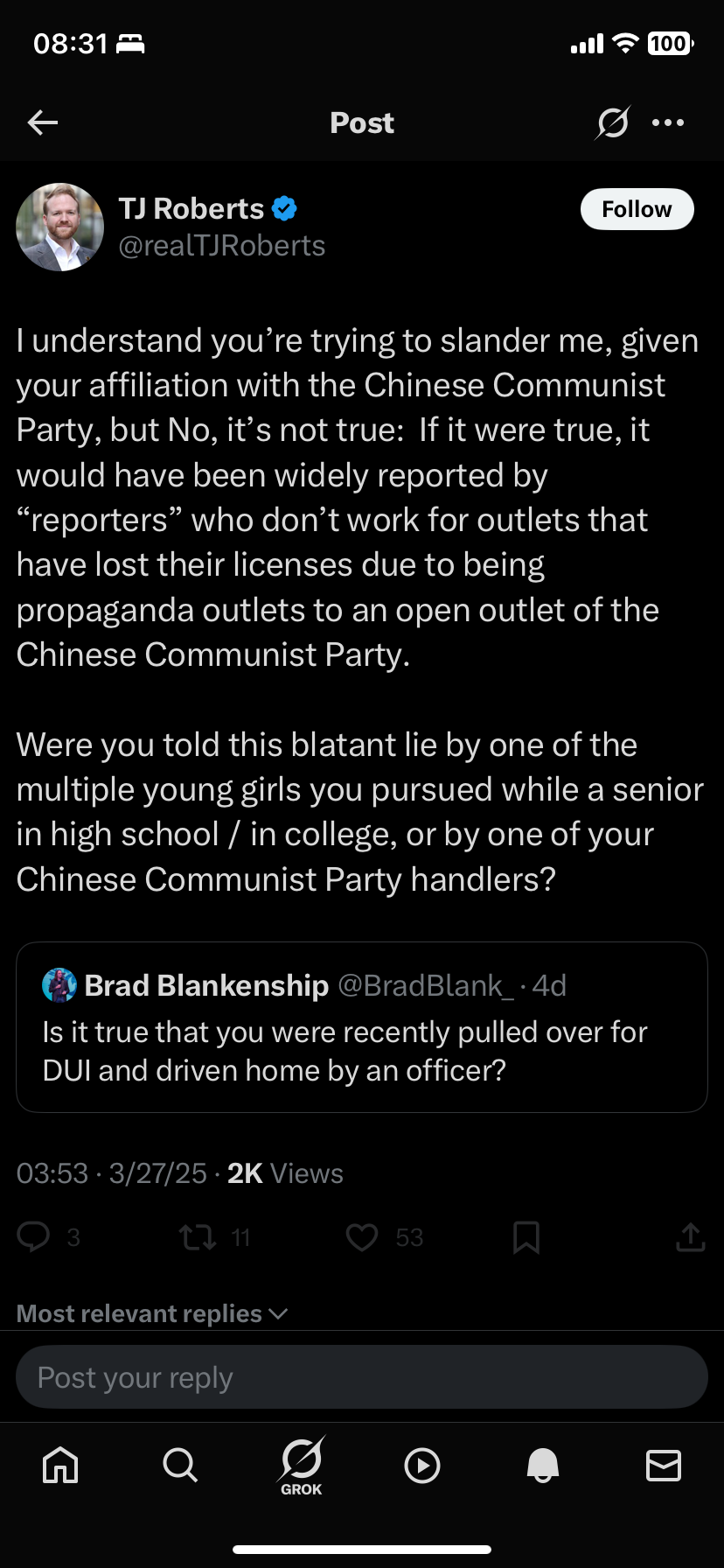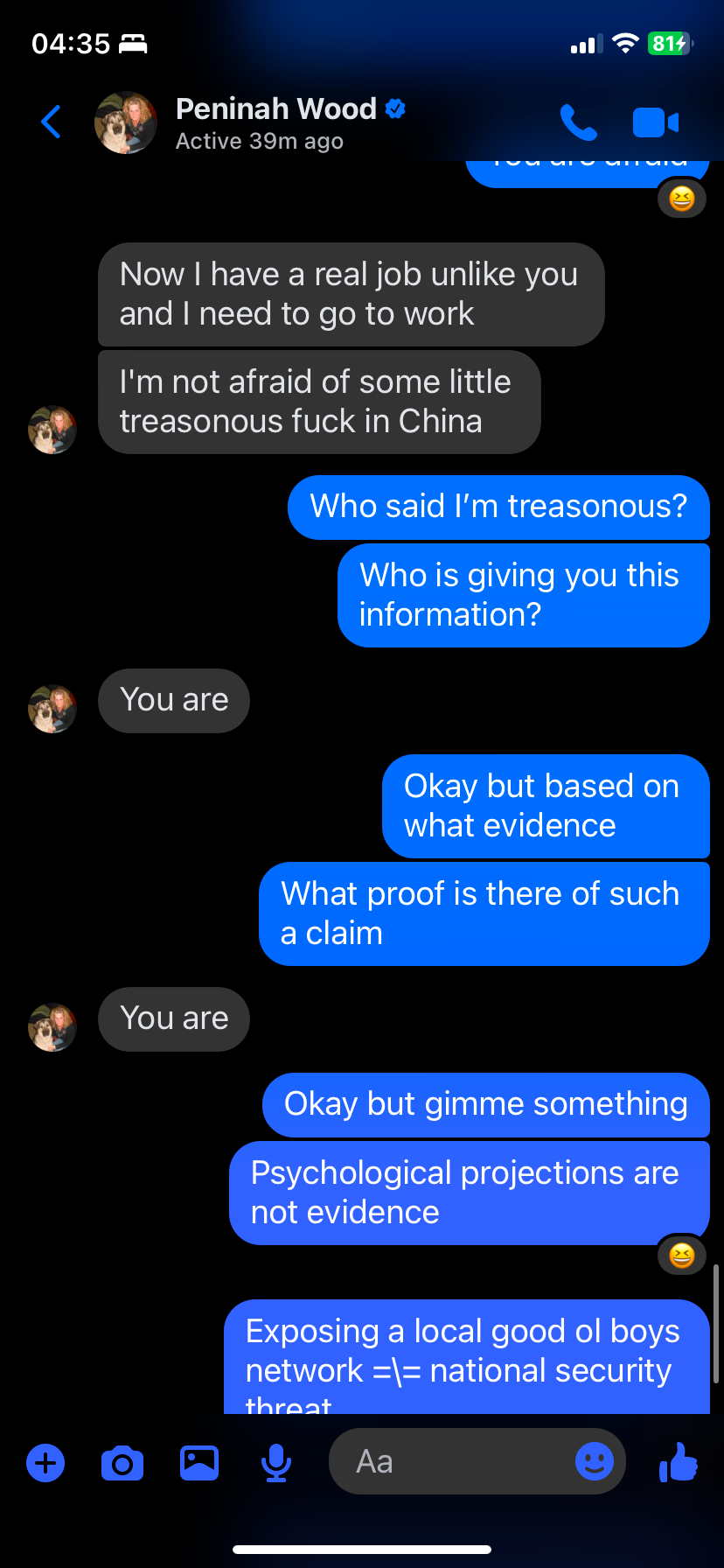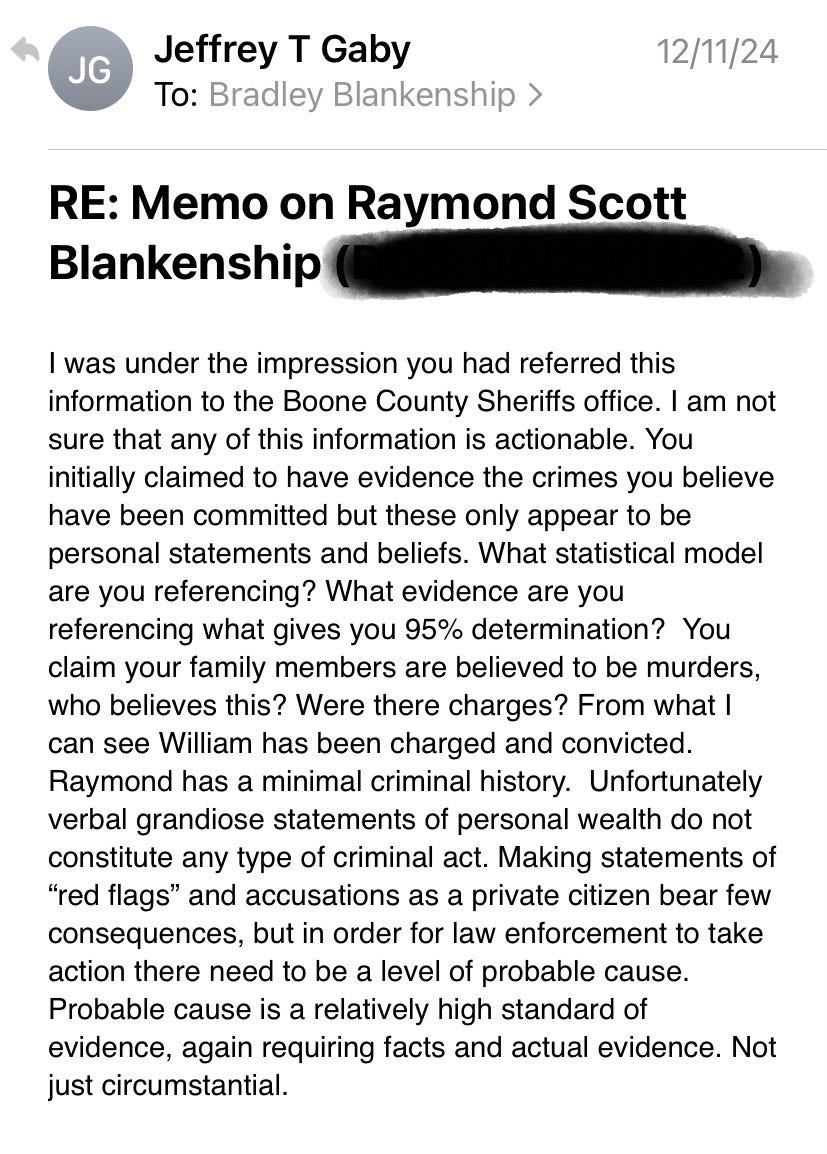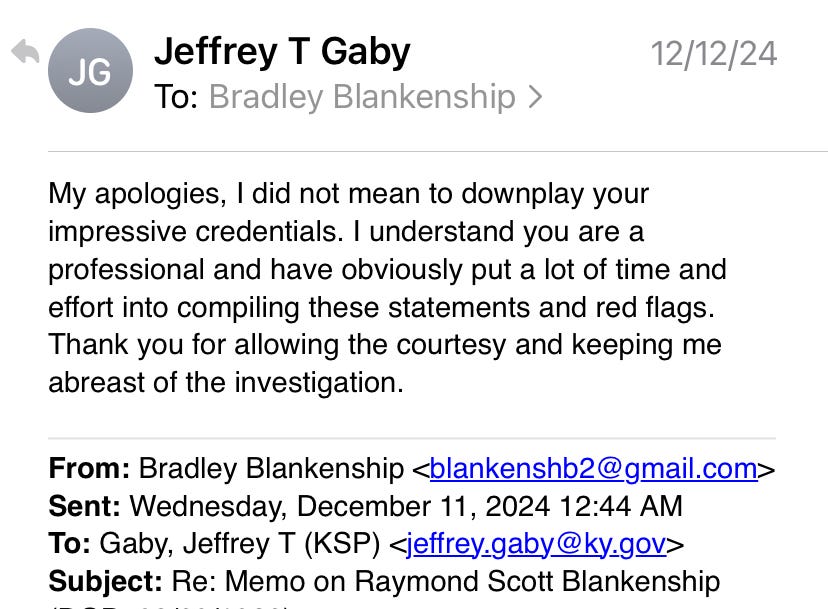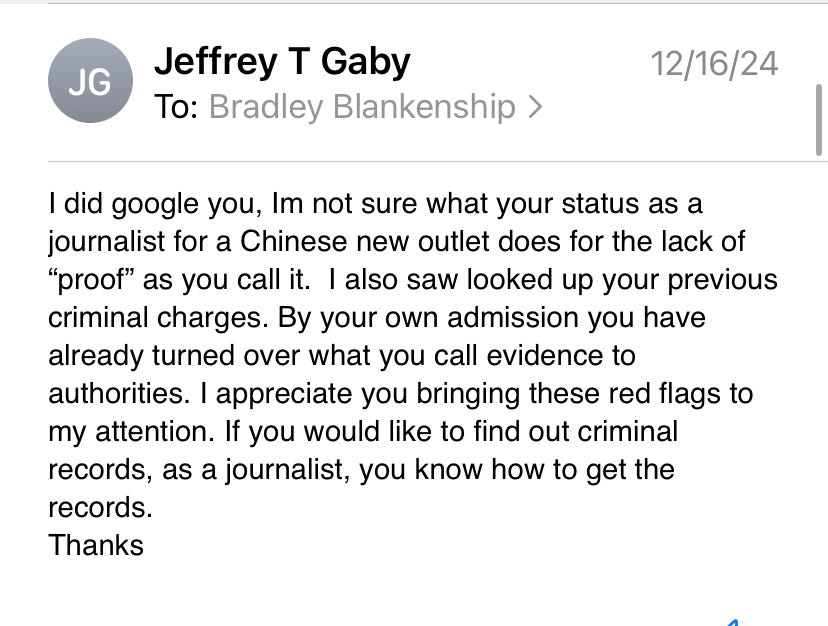Why Corruption Is Thriving in Kentucky: A Case Study in Retaliation Against Reporters
Kentucky’s corruption investigators have become protectors of the crimes they were meant to expose.
In any functioning society, public corruption is addressed through independent oversight, investigative rigor, and a commitment to truth over loyalty. In Kentucky, however, the very body tasked with investigating public corruption—the Kentucky State Police (KSP)—has become a symbol of the structural failure that allows organized criminal activity to flourish under state protection.
This is not hyperbole. It is the logical outcome of a law enforcement culture that lacks competence, accountability, and intellectual seriousness, and which—through its actions or omissions—has enabled a climate of impunity across the Commonwealth.
Documented Retaliation, Widespread Silence
Over the past year, I and others have received credible reports of psychological warfare tactics being deployed against survivors and whistleblowers. These tactics include:
Surveillance and stalking
Targeted intimidation
Retaliatory false charges
Suspected identity theft
State tolerance of violent activity by criminal networks
In Northern Kentucky, this is no longer merely an allegation. It is established fact, backed by a documented evidentiary record. The pattern is too consistent, too widespread, and too well-sourced to dismiss as coincidence or exaggeration.
And yet, despite this record—and despite repeated calls for proper investigation—there has been no meaningful action from state authorities. This is not because the evidence is unclear. It is because the body with jurisdiction over public corruption is, itself, compromised.
Before proceeding further, I believe it is important to share some of the retaliation I have personally faced during the course of my investigation. This provides necessary context for how certain political figures respond when confronted with basic accountability.
The following are public slurs issued by Representative TJ Roberts and Boone County Commissioner Chet Hand, who is currently a candidate for County Judge-Executive. And there are also messages from one Peninah Wood, who admits having coordinated her accusations with local authorities. I leave just a few examples here, though there are hundreds:
(For the record, TJ Roberts’ comment is entirely false. I am not affiliated with the Communist Party of China. None of the work on this Substack is sponsored by or promoted through CGTN. Contrary to his claim, CGTN has not lost its broadcast license in the United States. And, needless to say, I am not a pedophile.)
(Ms. Wood previously admitted, in written messages, that she was coordinating her efforts to intimidate me with individuals she believes I have falsely accused of corruption—despite the fact that I possess confessions and corroborating evidence related to the very activity in question.)
It’s worth noting that Mr. Hand gave a quote to LINK nky in a February 23 article, in which he stated:
“Our [Boone County Republicans’] position on Mitch McConnell is that he is a communist and does not represent the Republican Party. The body of our membership unanimously passed multiple resolutions stating such. There are some people that don’t feel that way about him, but it’s definitely a very small minority.”
This is simply to illustrate how little words mean to Mr. Hand, and how casually he deploys baseless ideological labels to serve political ends. I also want to mention here that I had tried to engage Mr. Hand and Mr. Roberts privately repeatedly, before asking anything publicly, and was ignored.
A Case Study in Institutional Collapse: Detective Jeffrey Gaby
The state level reveals why this pattern of corruption is allowed to persist, exemplified by the conduct and statements of individuals like Detective Jeffrey Gaby of the Kentucky State Police. Despite his posture, Detective Gaby currently holds a position with direct jurisdiction over public integrity and official misconduct.
This is what we’re up against.
Detective Gaby has shown a fundamental lack of understanding of basic legal and analytical concepts, including:
The definition and function of an internal memo,
The principles behind Bayesian statistical analysis,
The threshold for probable cause in criminal investigations.
Rather than address the facts of a high-profile murder case that presented, at that time, a 95% statistical correlation to a named suspect, Gaby’s response was not to investigate, but to attack the credibility of the journalist bringing the information forward.
This is not law enforcement. It is defensive tribalism masquerading as authority.
It is emblematic of a larger truth: the individuals entrusted with rooting out corruption in Kentucky are, in many cases, neither equipped nor willing to do so. They respond to evidence with hostility, to whistleblowers with suspicion, and to the public interest with contempt.
I later sent multiple detailed memos to Detective Jeffrey Gaby, all of which were ignored. When asked for comment regarding my forthcoming memoir—in which he will be named—his only response was to ask for the book’s title. He offered no substantive reply.
This is not professionalism. It is indifference with a badge. He does not take any of this seriously—and that, in itself, is part of the problem.
Why Corruption Thrives
Corruption does not survive in daylight. It survives when:
Oversight is performative,
Investigators lack the tools or will to act,
Credible evidence is met with bureaucratic ridicule, and
Those who speak up are treated as threats, not allies.
In Kentucky, these conditions are not the exception—they are the norm.
There is no firewall between criminal conduct and the state. The mechanism meant to investigate corruption is, at best, inert—and at worst, complicit.
When I submitted evidence of high-level criminal activity—including murder, obstruction, and racketeering—I expected resistance. But I did not expect to find that the state’s own anti-corruption apparatus is intellectually and morally unfit for the task at hand.
Where This Leaves Us
Let me state clearly: I no longer recognize the authority of the Kentucky State Police or any legal or judicial directive issued by the Commonwealth, unless and until oversight is federally mediated by the Department of Justice.
You cannot ask survivors to trust a system that openly mocks evidence, that attacks the messenger, and that rewards incompetence with jurisdiction.
The KSP has disqualified itself—by its conduct, its posture, and its unwillingness to engage with the truth.
What we are witnessing in Kentucky is not a policy failure. It is the collapse of institutional integrity at the enforcement level. And where enforcement fails, corruption becomes permanent.
Unless that changes—unless federal authorities step in with urgency and resolve—the people of Kentucky will remain under the rule of silence, denial, and fear.
And that is no rule of law at all.



